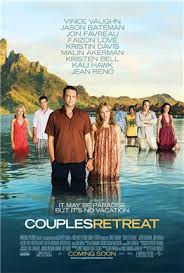| |  |
In an interview I did recently for a radio show on caregiving during the holidays, the host and I wondered why it is that holidays are such a hard time for taking care of ourselves. Many times we put our healthy routines and habits on hold to be with our families, complete holiday tasks and socialize. But along the way our bodies and our sense of self can deteriorate.
There seems to be a direct connection in my experience between the abandonment of self-care, the putting on of a 'happy face' and the ability to overindulge, feel bad about ourselves and disconnect from our bodies. The more we give ourselves away, the easier it is to abandon our bodies and our health. Almost as a way of compensating, we grab for the 'treats' that may make us feel worse in the end--alcohol, sugar, chocolate--without really listening to what we need. Since these treats may be the only form of (albeit false) self-care we get, we cling to them even more during the holidays than we might at other times.
So what keeps us connected during the holidays to our health and ourselves? This year, as you move into the holiday frenzy and toward food, family and friends, pay attention to the way you interact with your body and see if there's a way to stay connected. Notice if there's a way to fit in a moment for yourself amid the hustle--one that allows you to take a few deep breaths and pay attention to how your body is doing, what it might actually want or need. Use your body relationship as a way of actually checking in with yourself: are you tired? Sad? In need of some time to yourself? Your body often holds a host of messages that are available to you as soon as you check in.
Our bodies don't lie. As we listen, they require us to be authentic about our feelings and our needs. And as with any relationship, our bodies prefer connection over disconnection, even in small doses. Checking in at all--even in a moment--to your body's needs begins to rebuild trust in the relationship.
It also helps when we stay honest: if you do find yourself overindulging, see if you can stay connected to your body and apologize rather than feeling guilty, shutting down and (probably) perpetuating the cycle. Ask your body what it needs, and recommit to doing the best you can to listen. Reconnecting to your body and what it needs slows things down and takes you out of concepts of whether you've done something 'right' or 'wrong.' Stay light about your humanness and your ability to make mistakes. Allow yourself to be exactly where you are, doing the best you can.
Maybe this is what's so hard about the holidays. For many of us, our identities are shifting to take in old family relationships, traditions and expectations of meaning and kindness. It gets harder to stay in touch with our authentic selves rather than a put-on a--sometimes fake-- holiday face. And yet if we're not fully present to our experiences, something is lost--we can feel ourselves going through the motions. The same is true of our bodies--and there's no truer proof of this than the extra five or ten pounds so commonly associated with the holidays.
If you can't yet be totally authentic with the family, see if there's a way to be authentic with your body. Listen to its messages and see what it might be like to respond. Even if things can't look the way they usually do with your regular routines of diet and exercise, see if you can do little things that keep you connected: breathing, listening, even stretching or going for a walk. You don't have to be perfect, you just have to show up. Take the pressure off you and your body and let yourselves be exactly as you are, showing up with whatever you truly need. The fa la la la la can wait.
JOIN US FOR A FREE HOLIDAY TELECLASS: SATURDAY, DECEMBER 19TH at 9:30amPST.
Over the Streudel and Through the Nog:
The Body Reunion Solution to Avoiding Holiday Overeating
Tune in before you go off to do your holiday shopping!
We'll explore how to:
*Steer Clear of Negative Holiday Eating Habits
*Avoid the Guilt of Overdoing It
*Develop a Better Relationship to Your Body Through the Holidays
*Gain Tools to Make Healthier Choices, Now and Into the New Year
This one-hour class is ideal for anyone struggling with their body and food, compulsive overeating or exercise or a feeling of discomfort with how they look and feel in their bodies.
CALL-IN NUMBER: (218) 339 2500
Access Code: 594697#
There will be a chance to ask questions and participate as much or as little as you want!
I wish you all a Happy and Healthy Holiday...
All my best,
Anna













